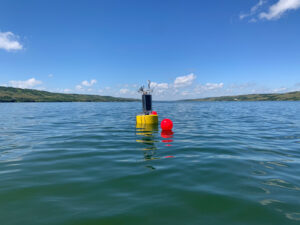YSI EcoSense EC30A Conductivity Pen
Features
- IP-67 waterproof housing
- 1-year instrument warranty
- Automatic temperature compensation
- Expedited repair and warranty service
- Lifetime technical support
- More
With a one-year instrument and electrode warranty, the EC30A will fit your needs for an easy-to-use conductivity, TDS and temperature instrument. The EC30A is a reusable pen-style instrument. The electrode cap is easy to replace while keeping the instrument. No throw-away instrument here!
- IP-67 waterproof housing
- 1-year instrument warranty
- Automatic temperature compensation
- User-replaceable electrodes
- 1- or 2-point calibration
- Clear, easy-to-read display with on-screen instructions
- Selectable units of measure for conductivity, TDS and temp
- Selectable or auto-raning for conductivity or TDS
- "Hold" feature locks readings on display
- >200 hour battery life; low battery indicator
- Last calibration GLP record
- ATC Probe:Thermistor, 10kΩ at 25°C
- Battery:Four LR44 alkalines included with purchase
- Battery life:200 hours or greater (low battery indicator)
- Operating temperature range:0.0 to 50.0 °C (32.0 to 122.0 °F)
- Warranty:1-year instrument and electrode
- Water resistance:IP-67 waterproof case
- Weight:105 grams (3.7 ounces) with batteries
- (1) EC30A instrument
- (1) Conductivity electrode
- (4) Replacement batteries
- (1) Instruction Manual
In The News
What is Conductivity?
UPDATE : Fondriest Environmental is offering their expertise in conductivity through their new online knowledge base. This resource provides an updated and comprehensive look at conductivity and why it is important to water quality. To learn more, check out: Conductivity, Salinity and TDS. Salinity and conductivity measure the water's ability to conduct electricity, which provides a measure of what is dissolved in water. In the SWMP data, a higher conductivity value indicates that there are more chemicals dissolved in the water. Conductivity measures the water's ability to conduct electricity. It is the opposite of resistance. Pure, distilled water is a poor conductor of electricity.
Read MoreApplied Research and Innovative Solutions: Creating CHNGES at Western Kentucky University
Long-standing environmental monitoring programs have the power to support a large number of research initiatives and policy changes—however, actually starting these networks can prove challenging. Not only is starting the program difficult, but keeping things operational for decades to come has also been challenging for environmental professionals hoping to make an impact with applied research. Jason Polk, Professor of Environmental Geoscience and Director of the Center for Human GeoEnvironmental Studies (CHNGES) at Western Kentucky University, is all too familiar with this process.
Read MoreCombating Water Insecurity in Saskatchewan with Real-Time Data
The prairies of Saskatchewan can be described as one of the least water-secure parts of Canada, making water quality monitoring essential for informed resource management in a region already facing water insecurity. While natural physical properties worsen some of the poor water quality conditions in the region, others are connected to land use. Having grown up spending summers on the shores of Lake Huron, Helen Baulch, an associate professor at the School of Environment and Sustainability at the University of Saskatchewan , has always been dedicated to the protection of water resources. Looking back fondly at her childhood playing along the shore, Baulch also recalls the invasion of quagga mussels during her teenage years and watching the lake change as a result.
Read More















